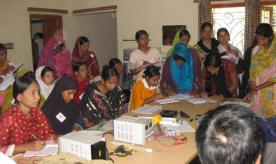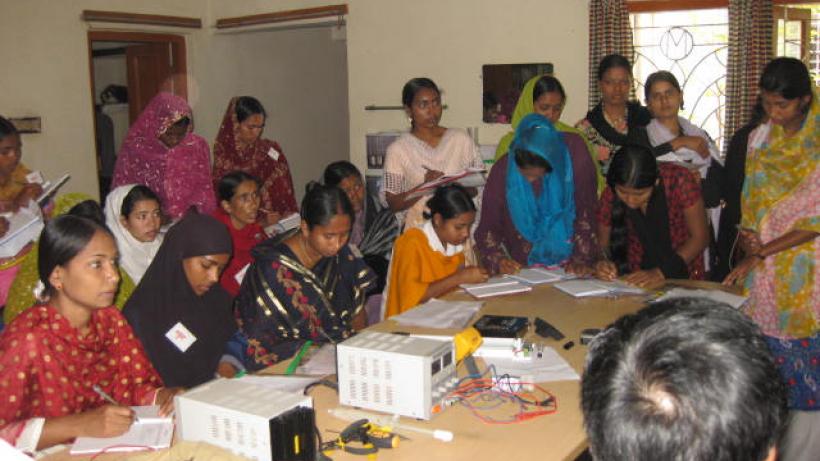Improving skills in Bihar: How to reduce drop-out rates from training programmes?
India, like other developing countries, suffers from low productivity of labour (Bloom et al. 2014). Training the labour force is the primary policy to increase skills and labour productivity. However, the literature has shown that designing successful training programmes is difficult (Blattman and Ralston 2016, McKenzie 2017). In many instances, they suffer from low take-up and high attrition rates, which plague the impact on final outcomes. This project aims to study the determinants of attrition in the case of a large training programme in India.
The setting for this research is the state of Bihar, one of India’s poorest states, where caste- and gender-based hierarchy is pronounced. "Deen Dayal Upadhyaya Grameen Kaushal Yojana" (DDU-GKY), launched in 2014, is one of India's major and most prominent skills and job creation schemes. The scheme is residential, attracting candidates from remote villages, and mandates that each trainee is offered a job at the end of the training. However, as highlighted by an initial survey the researchers conducted among some project implementation partners in Bihar, high attrition rates during and after training are a serious cause of concern.
This project proposes a randomised controlled trial to measure the influence of two interventions on training completion and retention in employment post-training:
- The first delivers more precise information on working conditions in the jobs trainees are trained for, at the very beginning of the training.
- The second offers a training session focused on candidates' fears and doubts about starting a job and migrating far from home.
These interventions test two concrete dimensions that are suspected to be important in trainees' decisions to drop out of training and employment. If the interventions prove to be successful, they can easily be implemented by local training centres and training centres in other states.
Results from this research hold wider interest than just Bihar as DDU-GKY exist all across India, and attrition is a general concern. The results generated through this research should be of interest to all public and private stakeholders involved in the planning and implementation of the scheme. Because the interventions will be designed and tested in Bihar, this project aims to maximise the impact of the lessons learnt from the research.







